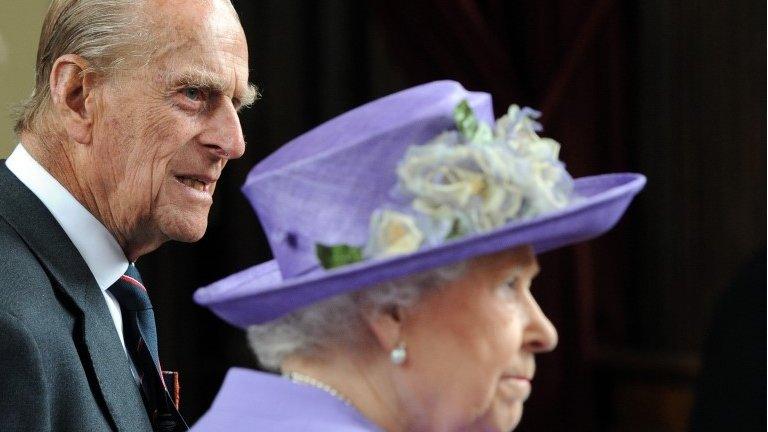Sarajevo marks 100 years since Archduke Franz Ferdinand shooting
- Published
Allan Little looks at how the assassin is remembered in Sarajevo
Bosnia has commemorated 100 years since the assassination of Austrian Archduke Franz Ferdinand in Sarajevo, the act that triggered World War One.
Cultural and sporting events, including a concert by the Vienna Philharmonic, marked the occasion in the city.
Gavrilo Princip, who shot the heir to the Austro-Hungarian throne, continues to be a divisive figure in Bosnia.
The shots fired by the Bosnian Serb on 28 June 1914 sucked Europe's great powers into four years of warfare.
Bosnia's Serbs, Croats and Muslim Bosniaks are still divided over the role Princip played in bringing tensions to a head in Europe in 1914, with counter-commemorations organised by Bosnian Serbs.
In Austria, Franz Ferdinand's great-granddaughter and family held events at the family castle at Artstetten, near Vienna, where he is buried.

Countdown to WW1
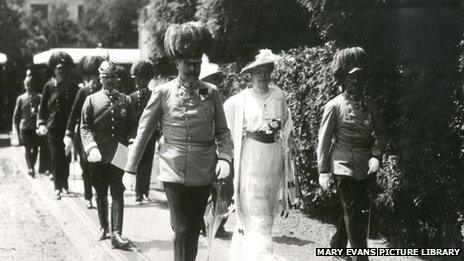


Differing interpretations
Leaders of Serbia and some Bosnian Serbs boycotted the official events, which they said were designed to incriminate Serbs.
On Friday, Serbs in eastern Sarajevo unveiled a statue of Princip, seen by them as a national hero who ended years of occupation of the Balkans by the Austro-Hungarian empire.
In the eastern town of Visegrad, actors re-enacted the murder of Archduke Ferdinand and his wife, Sophie, and the Belgrade Philharmonic played music by Vivaldi.
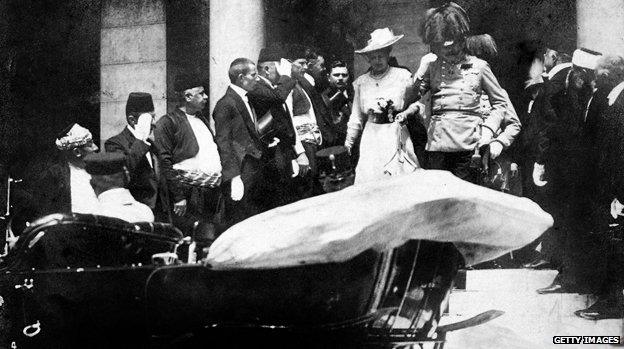
Austrian Archduke Franz Ferdinand and his wife Sophie were shot dead in their car by Gavrilo Princip
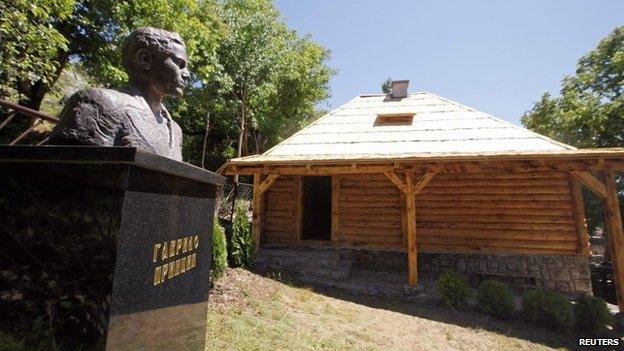
Bosnian Serbs are planning to open the house in Obljaj where Gavrilo Princip was born in his honour
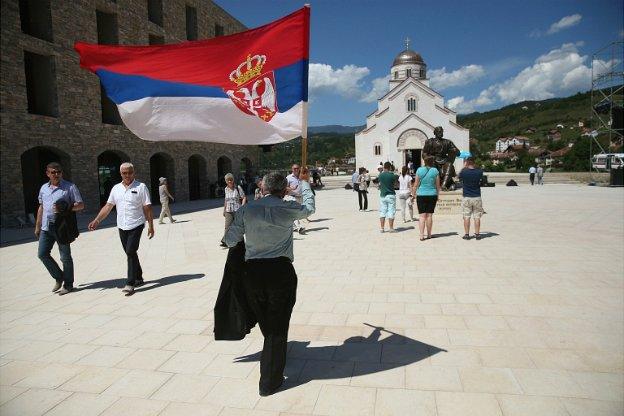
Serbian and Bosnian Serb leaders held their own events in the eastern town of Visegrad on Saturday
The commemorations in central Sarajevo took on a completely different tone to those in the east of the city, says the BBC's Guy De Launey.
The Vienna Philharmonic played a selection harking back to Hapsburg days, including Haydn's Emperor Quartet, he added.
Anita Hohenberg speaks about her great grandfather Franz Ferdinand
The concert was held at the newly-restored national library, which was destroyed during the 1992 siege of the city by Bosnian Serb forces in the Bosnian War.
Austrian President Heinz Fischer attended the concert, which was the centrepiece of official events marking the anniversary.
Commemorations closed with an open-air musical memorial event in Sarajevo.
Twenty-eight European Union leaders gathered on Thursday to mark 100 years since the beginning of World War One at Ypres in Belgium.

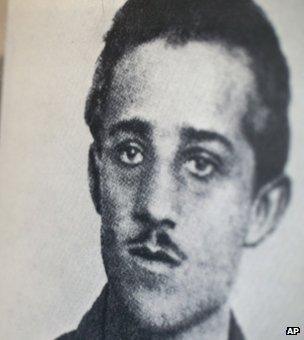
Princip and the shot that sparked WWI
Gavrilo Princip, one of seven members of Mlada Bosnia (Young Bosnia), a Bosnian Serb militant organisation which wanted independence from Austria-Hungary
Archduke Franz Ferdinand and wife Sophie shot dead in their car by Princip on 28 June 1914 in Sarajevo
Austria responds angrily and declares war on Serbia, securing unconditional support from Germany
Russia announces mobilisation of its troops
Germany declares war on Russia, 1 August
Britain declares war on Germany, 4 August

Meanwhile, the UN cultural organisation Unesco asked all vessels at sea to fly their flags at half-mast on Saturday to mark the assassination anniversary.
The organisation is trying to highlight its convention on underwater cultural heritage, designed to increase safeguards for thousands of sunken ships vulnerable to deliberate destruction and looting.
The agreement only applies to century-old wrecks so over the next four years, thousands of British, German and other ships lost in World War One will be added to the list.
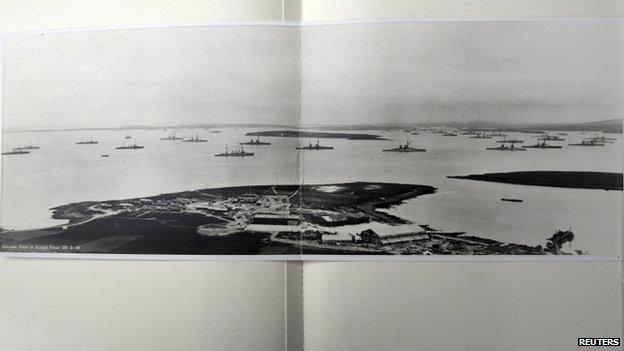
Wrecked German warships at Scapa Flow in the Orkney Islands - seen here in 1919 before they were deliberately sunk - will fall under the UN convention in the next few years
- Published27 June 2014
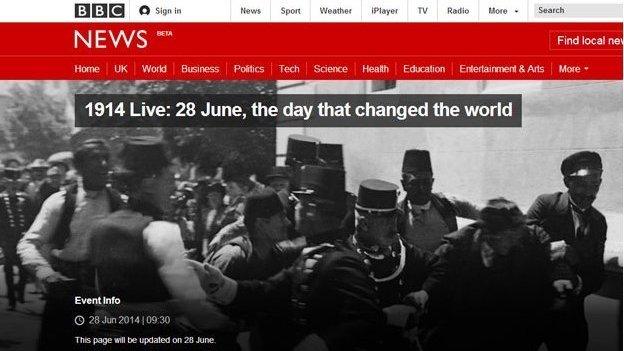
- Published26 June 2014
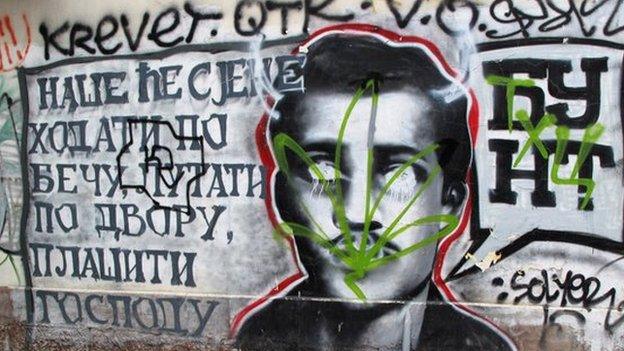
- Published28 June 2014
